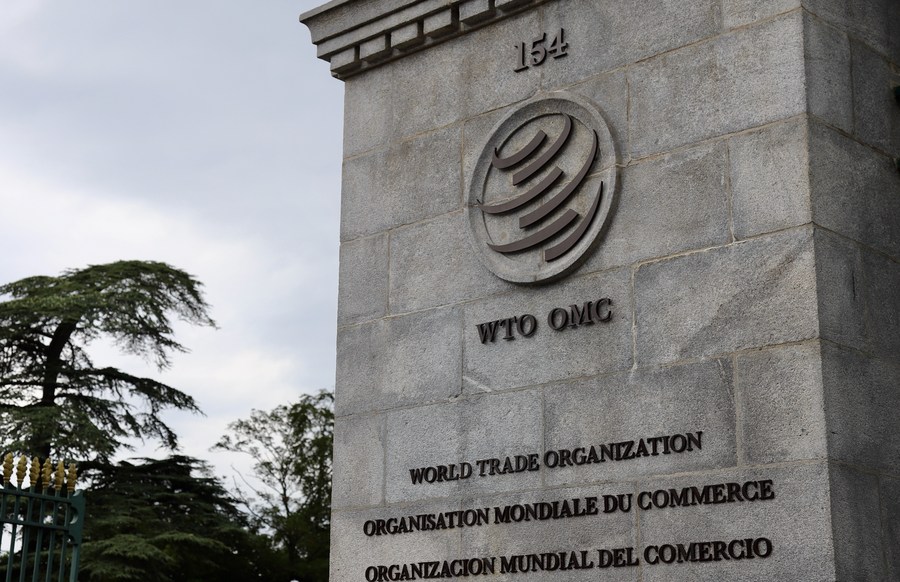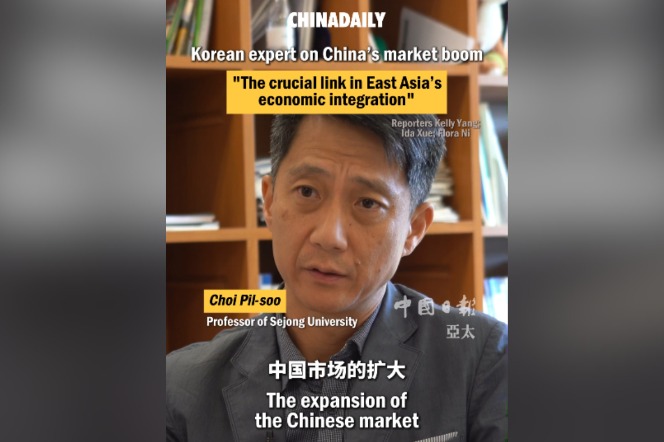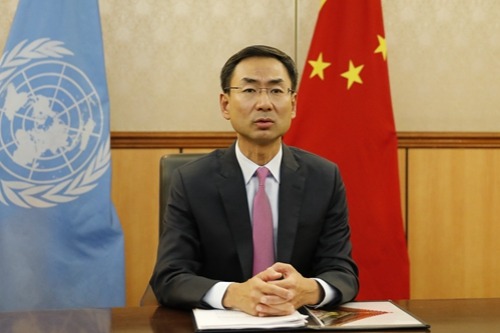China's accession to WTO seen as exemplary


The 20th anniversary of China's accession to the World Trade Organization marks a significant milestone for the Chinese economy. At present, the world community has witnessed China's determination for solid policy measures and its new willpower to deepen reforms and seize opportunities.
Without a doubt, China is already the world leader in artificial intelligence, and Wu Dao 2.0, a multimodal AI model, is by far the most advanced AI system in the world. The "China AI Development Report 2018", from the China Institute for Science and Technology Policy at Tsinghua University, said China was the global leader in the amount of AI investments, with 60 percent of the world's total venture capital investment in AI from 2013 to the first quarter of 2018.
President Xi Jinping, in a speech in February about China's achievements in eradicating poverty and to commend outstanding efforts by individuals, said China stands for a people-centered development philosophy. China determinedly safeguards people's well-being and builds common prosperity-essential pillars pertinent to the consolidation of a socialist consultative democracy.
It is for these and other reasons that China has become a constructive contributor to the sustained development of the global economy and a faithful partner of the multilateral trading system. Without doubt, China's trading environment has been vividly improved at many levels and in many arenas and fields.
Since China's accession to the WTO, the nation has turned into the world's second-largest economy and the biggest trading nation. Its average annual input to global economic development is now close to 30 percent.
China's GDP has also grown tremendously, and the country's trade capacity has been amplified each decade. In addition, China ranks first with reference to the measure of foreign capital utilization and is the topmost destination for global foreign direct investment.
With the achievements since its accession to the WTO perceived as an astonishing case for China, Beijing has applied to join the Comprehensive and Progressive Agreement for Trans-Pacific Partnership.
China's alignment with the international tendency toward economic globalization has created new stages of domestic growth, while implanting innovative incentives in the world economy. Because the global economy is profoundly interconnected, some other nations have functioned more diligently as a result.
Within this framework, under the leadership of President Xi, the government has deepened regional and bilateral trade synergy, promoted openness and connectivity, enhanced relatedness around the world via the Belt and Road Initiative and the Digital Silk Road, and built a community with a shared future for humankind.
The BRI and Digital Silk Road have become the most respectable international initiatives and the largest cooperation platform. We are living in an interconnected, digitalized world, which has modified the operability of some conventional paradigms.
China's accession to the WTO is globally recognized as exemplary, resulting in the establishment of important synergies with governments, institutions and businesses across a much broader region and expanding on successful trade outputs.
Many nations go along with the Chinese platform and/or paradigm and work devotedly to build rather than demolish bridges, encourage connectivity rather than fragmentation, and pursue mutual benefits rather than segregation and exclusivity.
As the Chinese government gets the most out of new technologies, industries and forms of trade, most nations capitalize on the historic opportunities brought by China's innovative and multilateral trading system and Beijing's accession to the WTO.
It must also be recognized that the new economic model proposed by President Xi-the dual circulation development paradigm, under which the domestic market is the mainstay and the domestic and foreign markets reinforce each other-has already had a noticeable impact on China's international connections.
Announced in May 2020, China's dual circulation paradigm generates equilibrium in the realm of domestic and foreign partnership, preventing global market disruptions. China has modified its policy focus from commercial and economic accumulation to common prosperity driven by the twin goals of quality development and national rejuvenation.
This development pattern is aligned with China's durable line and/or objective of transforming itself from being an export-and investment-led economy to a demand-and innovation-driven one. Such a strategic objective will contribute to the accomplishment of long-term, sustainable development that will make the economy stronger and, consequently, advance the global value chain.
The author is former rector of European University Cyprus, a member of the European Academy of Sciences and Arts. The views do not necessarily reflect those of China Daily.

































